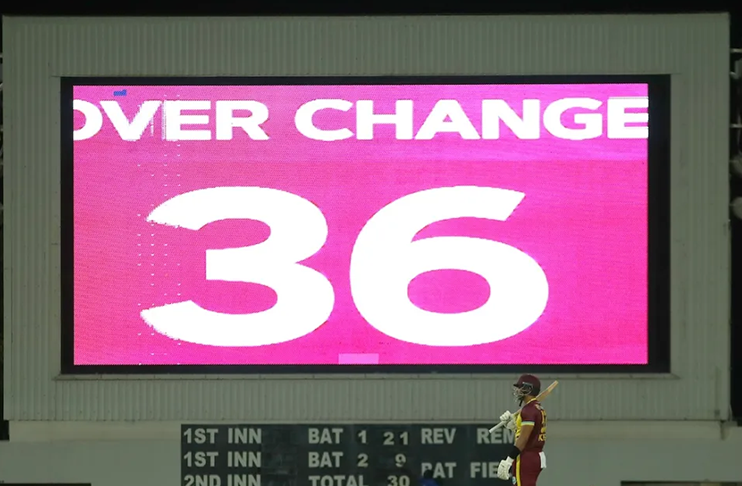The International Cricket Council (ICC) has introduced seven significant amendments to playing conditions that will impact all formats of cricket, including stop clock regulations and updated DRS procedures.
Some of these playing condition changes have already been rolled out in the ongoing World Test Championship (WTC), while specific rules for the 50-over format will come into effect starting July 2.
Stop Clock Regulation
The ICC implemented the stop clock rule in ODIs last year, and it will now be applied to Test cricket due to persistent slow over rates. According to this rule, the fielding team must begin the next over within a minute of the previous one. If they fail to do so, the umpires will issue two warnings before imposing a five-run penalty. These warnings will reset after every 80 overs. Additionally, the timer will count from zero to 60, a rule already in place in the latest WTC cycle.
Ball Change and Saliva Policy
The ban on saliva remains in effect, permitting umpires to refrain from changing the ball immediately if saliva is detected. This change aims to prevent teams from using saliva to alter the ball’s trajectory. The ball will only be replaced if its shape has significantly altered, such as becoming overly wet or shiny. If excessive movement occurs without any saliva affecting the ball’s condition, the batting team will be awarded five runs.
DRS Procedures Post Caught Decisions
The DRS protocol for caught behind decisions has been updated. Previously, if the ball grazed the batter’s pad without contacting the bat and a review was requested, the default ruling for lbw was not out. Under the new rule, if the ball tracking shows ‘Umpire’s Call’ after a caught decision has been overturned, the batter will be considered out.
No Ball and Fair Catch Review
Previously, if a no ball was called due to discrepancies among on-field officials, a referral was made to the TV umpire. Now, the third umpire will also assess the legitimacy of the catch. If the catch is clean, the batting team receives an extra run for the no ball; if not, they gain the runs scored by the batter.
Deliberate Short Run Penalty
Under the new regulations, if a batter is caught taking a short run, the batting team faces a five-run penalty. If it is determined that a batter intentionally fails to complete a run, the fielding team may choose which batter will take strike, while the five-run penalty still applies. According to Rule 18.5.1, a deliberate short run occurs when one batter pretends to run more than one run, while intentionally not completing their ground.
Player Replacement in Domestic Cricket
The ICC has stated that boards should provide replacements for players suffering from serious external injuries in domestic first-class matches, akin to concussion substitutes. However, the individual boards must fully verify injuries, and replacements will not be permitted for minor injuries like hamstring pulls.
Review Sequence in Combined Appeals
The review procedure will now adopt a chronological order for multiple appeal types, such as lbw and run-out situations. According to the revised rule 3.9, if there’s a simultaneous lbw and run-out appeal, the TV umpire will first evaluate the lbw appeal. If the batter is deemed out, that call will conclude the gameplay, negating further reviews.



